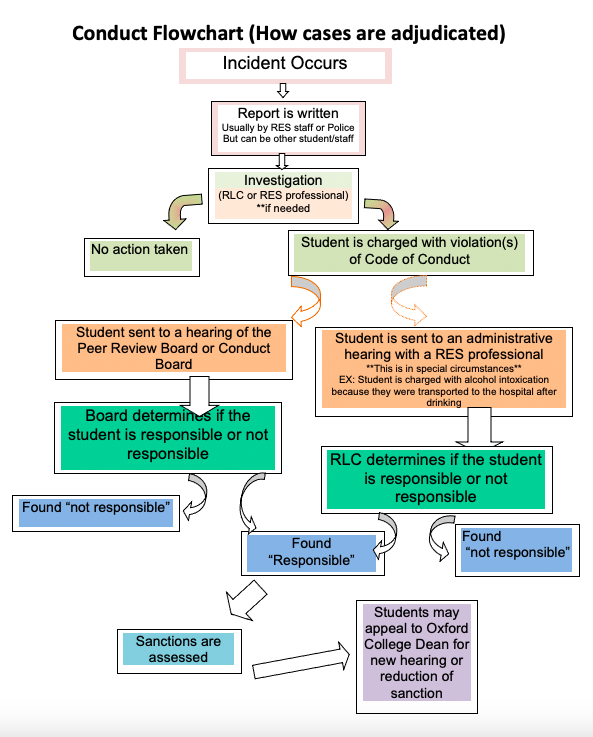Philosophy and Purpose
Oxford College of Emory University is an institution dedicated to providing educational opportunities, transmitting and advancing knowledge, and providing a range of services to both students and the general community. The college endeavors to foster in each student a love of learning, commitment to fair and honorable conduct, and respect for the safety and welfare of others. It also strives to protect the community from the influence of those who do not embody these values in their conduct, and to protect the integrity of the college and its property for the benefit of all. For this purpose, and in accordance with the bylaws of the college, the president of Emory University has defined the interests of the college community to be promoted and protected and has delegated to the dean of Oxford College and dean for campus life the responsibility of implementing such a system via the Oxford College Community Standards, hereafter referred to as the community standards
The activities of students beyond the classroom influence the educational process and learning environment, just as the intellectual atmosphere of the campus contributes to students’ personal growth and development. Many forms of non-academic behavior, as well as all academic affairs, are therefore areas of proper concern and regulation by the college community. The guiding principle of the community standards model is the responsible exercise of freedoms and privileges. Members of the college community are granted the greatest possible degree of self-determination correlative to acceptance of the full responsibility for their conduct and the consequences of their actions.
Because the college is an institution of learning, the community standards process has education as its foremost aim. The Community Standards expectations aims to sustain an environment conducive to learning, promote a climate of mutual respect, foster open dialogue that promotes learning and understanding, promote individual well-being and personal development, and encourage the application of ethical decision-making in the daily life of undergraduates.


